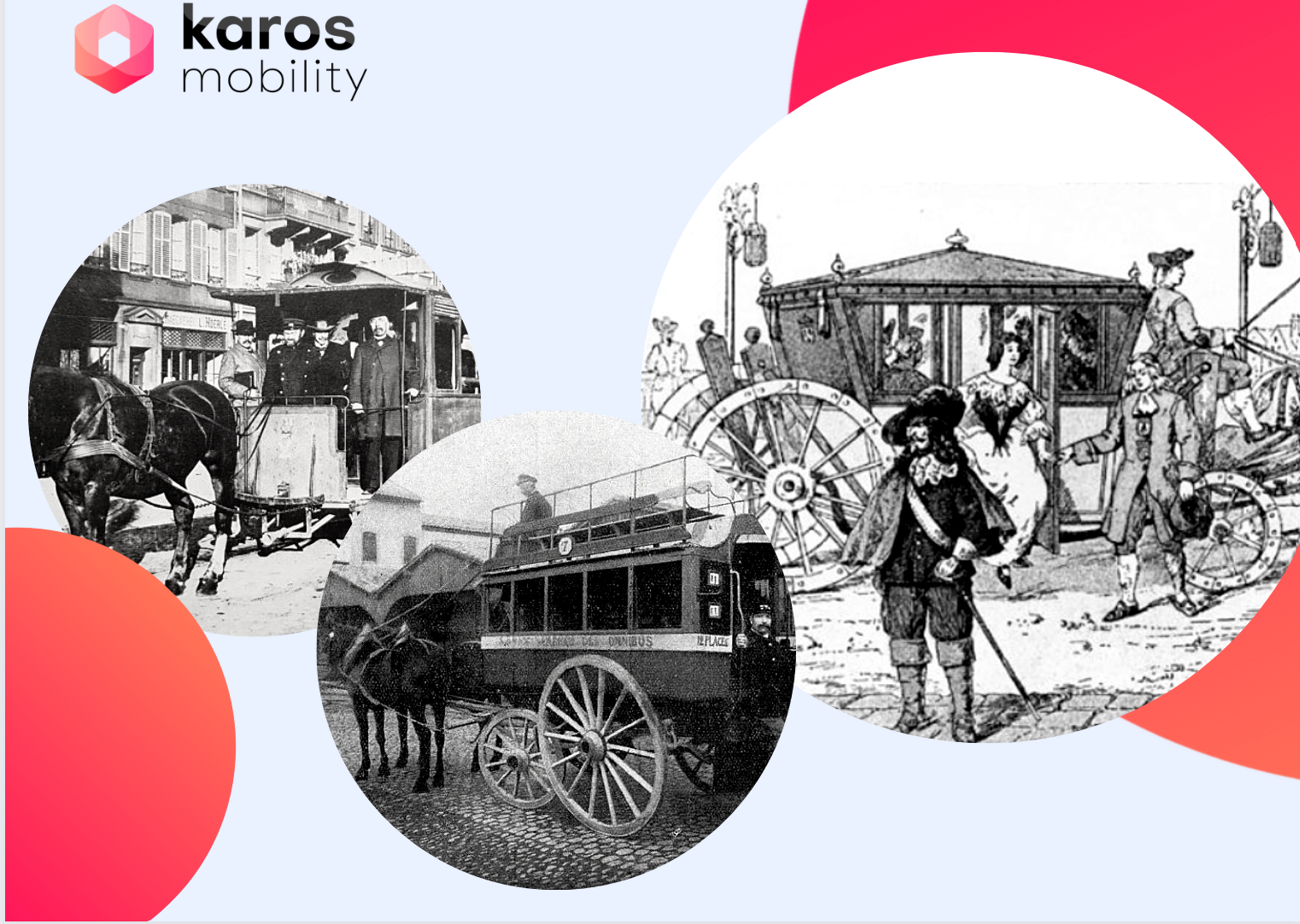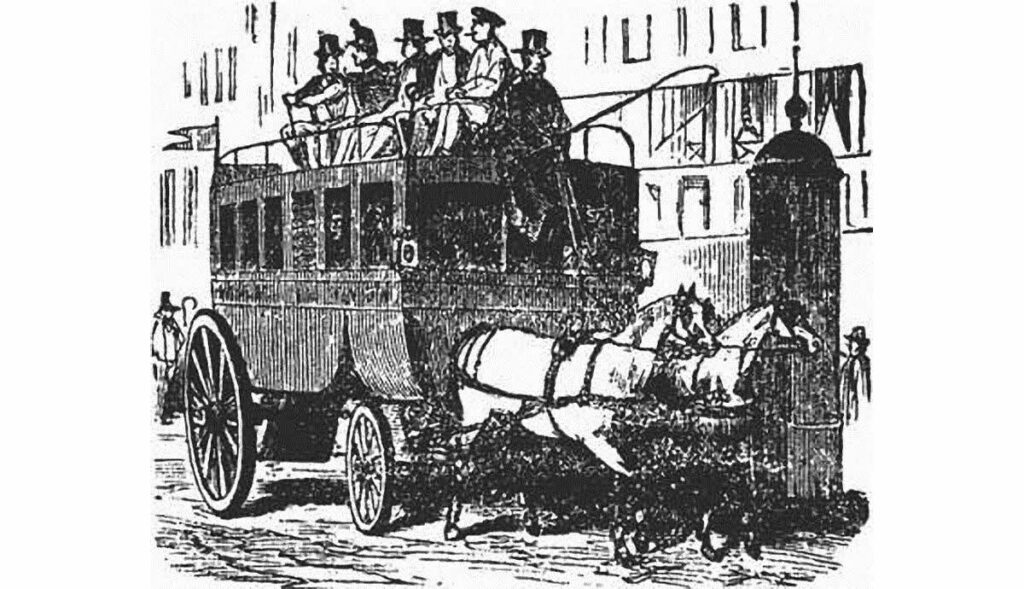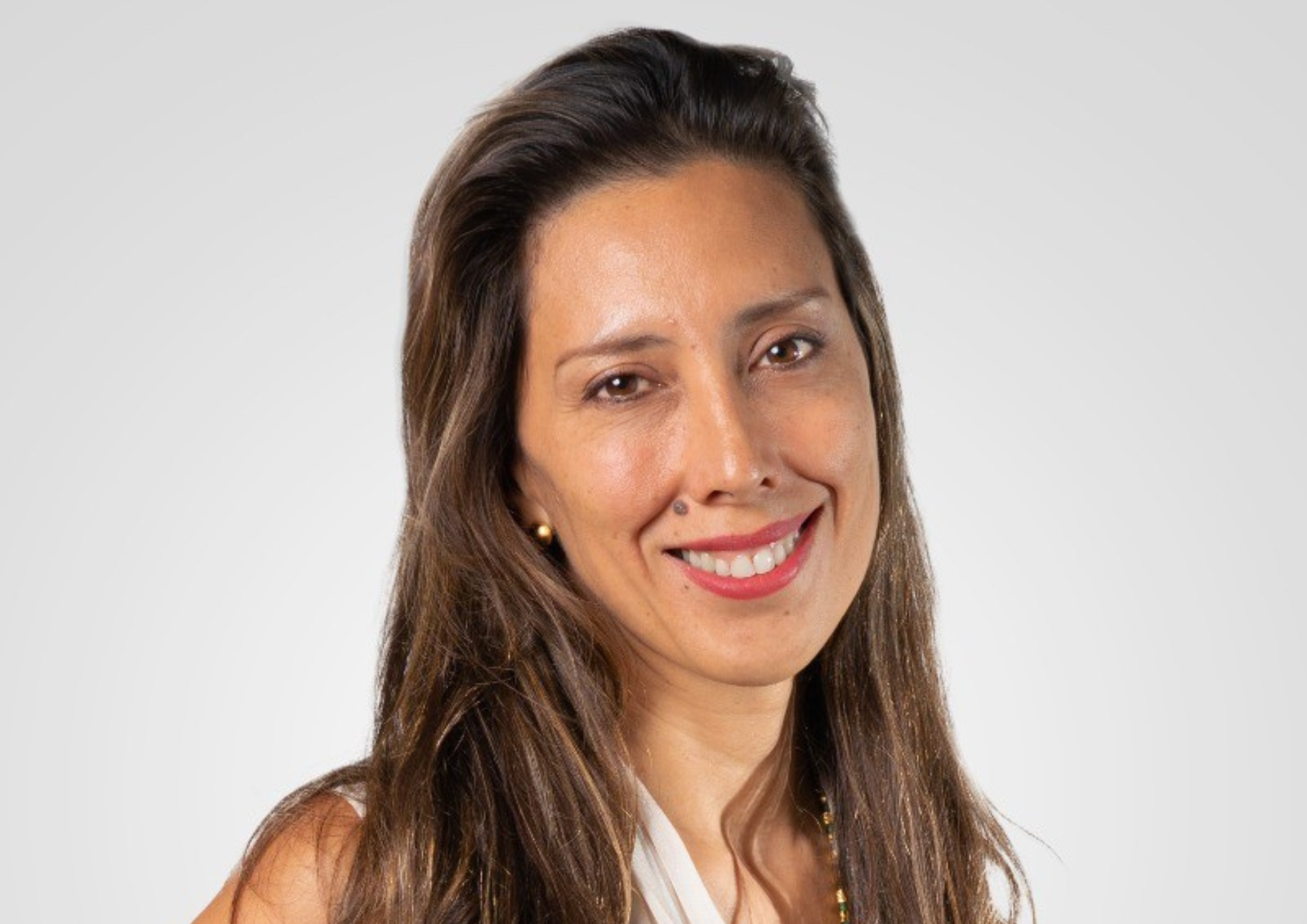Karos – the return of Blaise Pascal carriages

Are you wondering where our name, Karos Mobility, comes from? And how do you pronounce it? The explanation is very simple, and has its roots in the early days of mobility, in the 17th century!
But first, to better understand the context, you should know that Karos Mobility was created in France in 2014 and that in French the word carriage is said: “un Carrosse”.

D.R. source : DNA
Carriages as public transport
The idea was very simple: “carriages that would always make the same trips from one neighborhood to another […] and would always leave at set times, no matter how few people were on them, even empty if no one showed up, without those who would use this convenience being obliged to pay more than their seats.”
This idea was born out of traffic problems in Paris. The traffic jams are not of our time but date back to the time when carriages were used in the city.
The system was instituted in January 1662 by a decree of the King’s Council, Louis XIV, who was delighted with this new way for the people to move more quickly and comfortably at a reasonable cost. On March 18, 1662, a first line was opened to reach the Luxembourg Gardens from the Porte Saint Antoine. The vehicles stopped to let the users get on or off along the route, at their request.
A lack of support from the Parliament of Paris
But the Parliament of Paris did not see this invention as favorable. It imposed numerous restrictions, as well as an increase in tariffs. Against the king’s advice, it was decided that “soldiers, pages, lackeys and other liverymen, even laborers and handymen, could not enter the said carriages, for the greater convenience and freedom of the bourgeois and people of merit. Result: the carriages were no longer open to all but only to a part of the population…
The market became too small and the carriages disappeared for good in 1677. Blaise Pascal’s comfortable and fast mobility at a reasonable cost did not last long.
Today, the Karos are back
More than three centuries later, where do we stand? Of course, public transport has been widely developed in large cities and the use of the automobile, individual transport par excellence, has become widespread throughout the 20th century. But history is stubborn! And the problem that Blaise Pascal was trying to address still exists.
If today a part of the population can afford a personalized daily mobility, with a personal car, another part of the population must turn to public transport. However, 65% of the French population does not have access to public transportation, and are therefore forced to invest in their own car (nearly 6,000€ per year).
This is why at Karos Mobility, we want to allow car drivers to take people in their car, in exchange for sharing the costs. Our objective: to make the comfort of the individual car accessible to a greater number of people and to reduce the costs associated with the car.
Four centuries later, all cars are carriages. Our artificial intelligence technology makes carpooling from home to work a breeze. Every available seat is leveraged and shared efficiently with the community so that everyone can reach their destination quickly, comfortably, without paying a premium price.
Today, Blaise Pascal’s carriages take their revenge!














